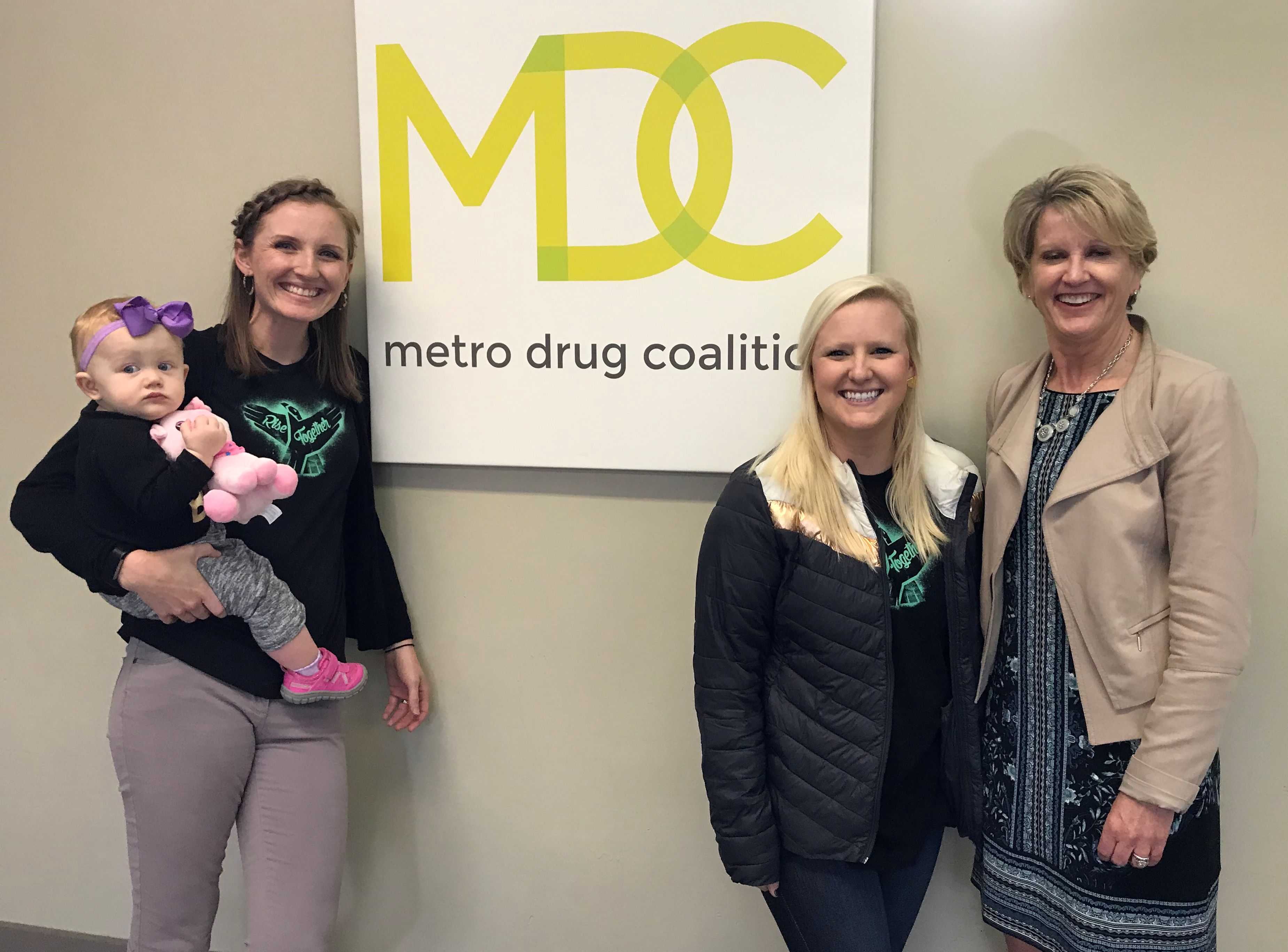Quickly, what’s the most abused brain-altering substance? If you said prescription opioid pain pills or any opioid, you flunked the quiz.
“It’s alcohol,” said Karen Pershing, and she should know. Pershing is the executive director of the Metro Drug Coalition, a position she’s held for nine years.
Although alcohol abuse often leads to an untimely death, death from opioid overdose is “right in your face,” Pershing said. Indeed, it makes local and national news regularly.
Pershing came to the Coalition from United Way of Greater Knoxville. She also spent three years at the health department where she did drug prevention work.
“I experienced my greatest professional and personal growth during those three years,” she said.
Despite her background, she admits to being taken aback by the enormity of prescription drug abuse when she caught up with the statistics at the Coalition. It had been building since the late 1990s and reached epidemic levels by the mid-2000s.
Still, the issue didn’t reach “critical mass” for politicians until about 2015, Pershing said. The bulk of research funding had to come from the government.
Some of us may succumb to a sort of willful blindness about the problem due to fear.

Karen Pershing
“We fear ‘those people;’ We fear it could happen to us,” said Pershing. (It could.)
Research is yielding insights that – while not offering “cures” – do explain what happens when any brain-altering substance, alcohol, opioids, marijuana, tranquilizers (even nicotine, smokers!) is ingested. Brain scans indicate that the “wiring” in the frontal lobe gets scrambled. When the synapses in the executive part of your gray matter lose their way, you’re in for trouble.
In short, your brain has been injured. Healing doesn’t happen overnight, which begs the question about short-term addiction “recovery” treatment: How do you treat a problem which is chronic and relapsing in nature in a week or a month? What does it mean to “recover?”
“We’ve been treating it acutely,” the director said. “After seven days or 28 days, we turn you out the door and say, ‘Good luck‘ The brain hasn’t healed.”
Pershing said people think the absence of drugs is “treatment.” It’s not, she added, and this is where individuals such as a “recovery coach” can make a difference.
A recovery coach helps the recovering addict devise a plan to go forward. The key is looking to the future, deciding what steps to take to build a life with rewards more lasting than the temporary high from drugs.
The term “gateway drug” is no longer used for marijuana, Pershing said, but THC alone alters the frontal cortex. Worse yet, the euphoria it causes decreases with use over time, and the depressed feeling when “coming down” deepens.
The brain matures at age 23 for females and 25 for males. If you begin abusing substances at, say, age 14 and stop when you reach 30, you’re stuck with an adolescent brain until you heal. Abuse stops maturation.
That’s one cautionary message for parents of teens. Here’s another: Substance abuse peaks between the ages of 18 and 25.
Adolescents who abuse substances are 17 ½ times more likely to have abuse issues as adults than their peers who stayed sober. Parents, Pershing said, should stay connected with their children at all times, but especially during those tough years.
Larry Van Guilder is the business/government editor for KnoxTNToday.

